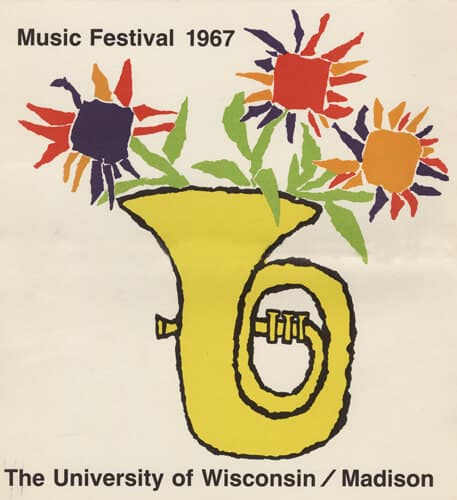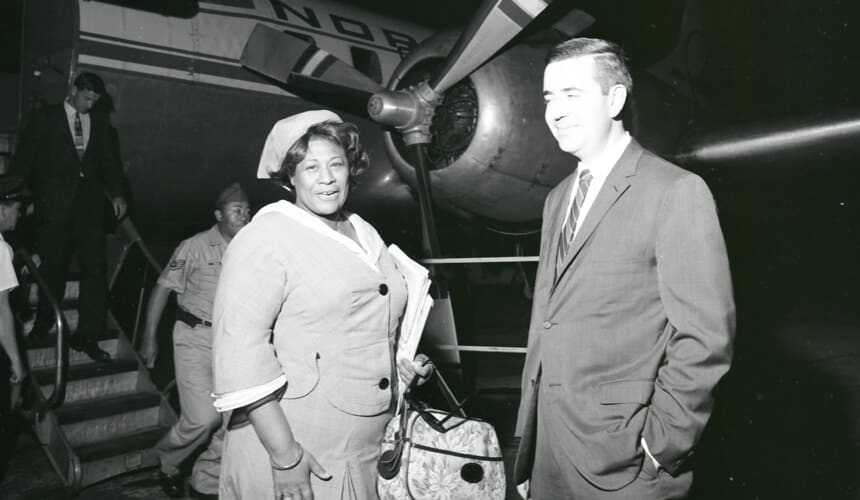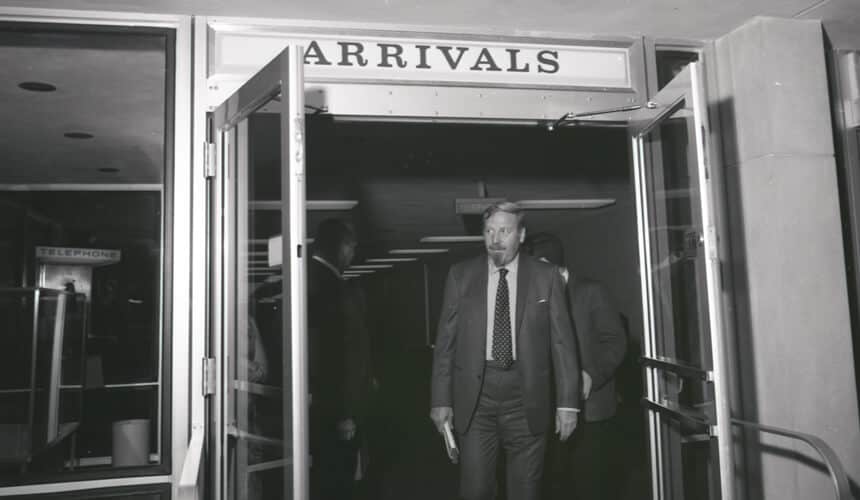The 1967 Music Festival
In Residence: The 1967 UW Music Festival
Over six mostly-sunny summer days in June 1967, the University of Wisconsin campus welcomed the Chicago Symphony Orchestra — and hundreds of students, faculty and staff, and community members — for an innovative music experience like Madison had never seen.
Sponsored by the UW School of Music and the UW Extension’s music department, the University of Wisconsin Music Festival stretched from June 19 through 24. Events were held at the Wisconsin Union Theater, University Pavilion, and the Wisconsin Field House.

Image courtesy of the UW Archives.
During the day, members of the orchestra held master classes and lecture demonstrations for students attending the summer session. At night, the community reveled in open rehearsals and concerts. Tickets cost a modest $2, with a discount offered to children and high school students.
The famous Chicago Symphony Orchestra took up residency at the UW and made Badger history for a few reasons: the weeklong festival was the first of its kind on campus, and the world-renowned ensemble was the first to take up residency in the school’s history.
Acclaimed conductors Antonio Janigro and Seiji Ozawa, along with their top-notch musicians, delighted audiences with a series of concerts featuring music from such Baroque masters as Vivaldi, Handel, and Purcell.
The festival’s grand finale was scheduled for Saturday evening under the stars at Camp Randall Stadium, but inclement weather forced the crowd of thousands to huddle in the Field House.
Jazz legend Ella Fitzgerald entered the stage to thunderous applause. Former Tonight Show conductor Skitch Henderson led Fitzgerald and the orchestra in a medley of classic George and Ira Gershwin hits, including Cuban Overture, An American in Paris, and Porgy and Bess.
“I woke up this morning and heard thunder and thought I was dreaming,” Fitzgerald told a Madison Capital Times reporter on her way to rehearsal. “This is like a surprise—as soon as we got out the door it started raining.”
Reports from the time do not mention whether Fitzgerald crooned “Come Rain or Come Shine.”
 29° F
29° F
